OUR BLOG
OUR BLOG

By Stephen Post
•
14 May, 2024
As millions celebrated Mother’s Day, LPP constituent and mother Melissa Charran spent the day behind bars. Like countless other families impacted by the War on Drugs, Melissa’s son is growing up without both of his parents. In a letter to LPP, Melissa shares her story: “It is truly unbelievable to be sitting here, in federal prison, for something many folks on the outside are building businesses out of. That was, and still is, a dream of mine—to own and operate my own brand within the c🍃nnabis industry. “I was charged in Denver, Colorado, where I lived at the time with my other half, Eric. He was also arrested and sentenced to 13 years. Being 5 months pregnant when I was arrested caused me a ton of stress and also resulted in an unhealthy amount of weight loss—something I’ve struggled with for a long time even prior to my arrest, which was the ultimate reason behind obtaining a medical 🍃 card in Colorado. “My pretrial supervision took place in Minnesota where I submitted to random urine tests, home inspections, therapy requirements and had to seek employment. I was successful, all while carrying my baby to full term, gave birth (without his father by my side) and raising him with the help of my family. “Although I served 2 years and 5 months pretrial, it was not satisfactory for the federal government … My sentencing judge stated that he 'needed to make an example out of me.' He gave me 24 months plus 1 year probation. “It kills me everyday to know that my 2-year-old son has to grow up without his parents, and I have felt helpless for a long time. I am beyond thankful to have heard from LPP, and I look forward to what feels like a hopeful future now.” As part of our advocacy program, LPP has supported Melissa with commissary funding, letters of support, and will recieve a reenty grant upon her release.
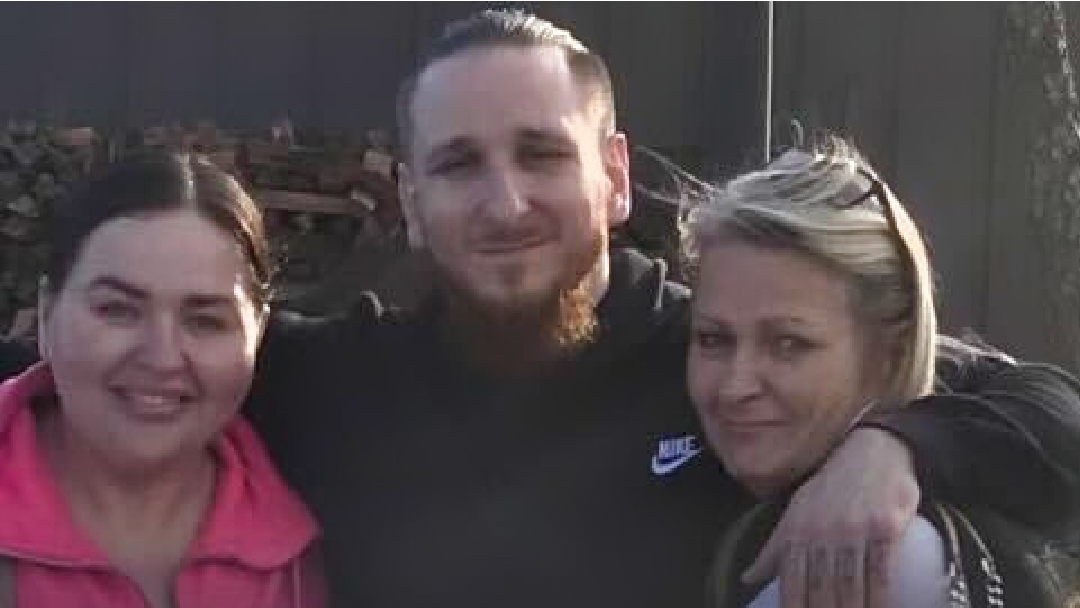
By Stephen Post
•
10 May, 2024
After Christian Reichert was sentenced to 23 years in prison for cannabis, his mother Tina would stop at nothing to bring him home. This Mother’s Day, please consider donating to support all mothers impacted by cannabis prohibition—both at home and behind bars. His mother Tina shared this statement: ”I just want to thank everyone that has helped Christian, I’m overwhelmed by the outpouring of love, support and generosity. We are truly grateful and could not have gotten prepared for him without the help of so many and the help we received from organizations like The Last Prisoner Project. We appreciate them all greatly. We are so excited [to have Christian home]. He’s having a lot of anxiety in this transition after almost 8 years of being incarcerated but is looking forward to [being] home. Please keep him and my family in your prayers during this celebration of freedom.” Christian will now be a part of the Last Prisoner Project reentry program, where we will help provide resources to aid in his successful transition back into society.
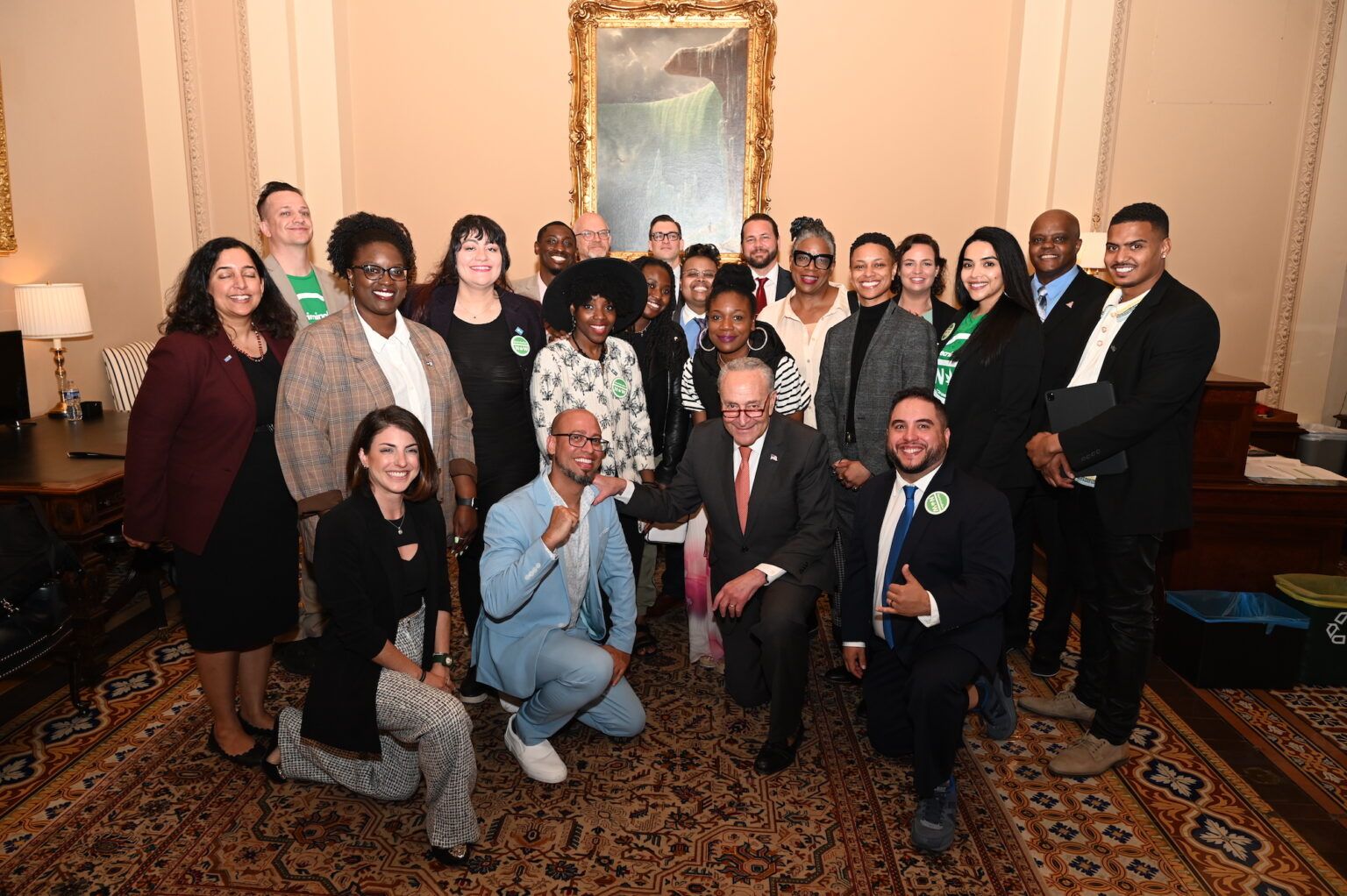
By Stephen Post
•
02 May, 2024
This week, Senators Booker, Schumer, and Wyden reintroduced the Cannabis Administration and Opportunity Act (CAOA), comprehensive legislation that would legalize cannabis federally, expunge cannabis records, and release cannabis prisoners. Here are just a few highlights to help breakdown this bill: CAOA, if passed, could finally decriminalize cannabis on the federal level. Federal courts would have 1 year to expunge or seal arrests, convictions, and juvenile delinquency adjudications for most non-violent federal cannabis offenses. They'd also be required to educate recipients on the effects of their expungement(s). Some federal cannabis tax revenue would be directed to organizations that help people secure state-level cannabis expungements. The Bureau of Prisons would have 60 DAYS TO RELEASE (and vacate the convictions of) individuals serving tiem for most federal cannabis-only offenses. Individuals whose convictions don't fall under those guidelines, or whose sentences were enhanced because of prior cannabis convictions, would be able to petition the court for a reduced sentence. The feds wouldn't be able to deny people federal public assistance because of cannabis use, possession, or convictions. They also would not be able to consider cannabis a controlled substance for the purposes of immigration proceedings. Read more about the CAOA here and read recent coverage in Filter Mag and Marijuana Moment of our 420 Unity Day where we joined with advocates to talk to Sen. Schumer and other lawmakers about the CAOA and other efforts to enact cannabis justice
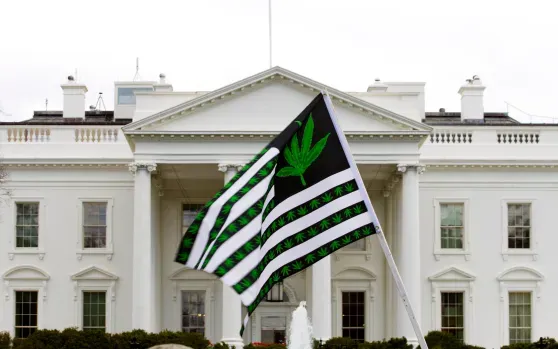
By Sarah Gersten
•
30 Apr, 2024
Rescheduling is not legalization, and the existing penalties for cannabis remain unchanged. In October of 2022, President Biden made a series of historic cannabis-related executive actions , including initiating a review by the Department of Health and Human Services (HHS) and the Department of Justice on how cannabis is scheduled under federal law. In August 2023, HHS recommended rescheduling cannabis from a Schedule I drug to a Schedule III drug and referred it to the Drug Enforcement Agency (DEA) for final approval. Today, the DEA announced its decision to approve the HHS recommendation to reschedule cannabis to Schedule III. The proposal now goes to the White House Office of Management and Budget (OMB), to review the rule. If approved by OMB, the proposed rescheduling would go to public comment before being finalized. This historic announcement is the culmination of years of advocacy by Last Prisoner Project (LPP) and other advocacy groups to push the federal government to better reflect the public’s view on cannabis. While the move is undoubtedly a step forward for the movement, it does not meet LPP’s goal to fully remove cannabis from the Controlled Substances Act and its associated criminal penalties. So then, what exactly does this schedule change mean for cannabis justice reform? While the action could result in some favorable tax and banking reform for the cannabis industry and more dedicated research for cannabis patients, there are no changes in how the criminal legal system punishes cannabis users. Rescheduling is a peripheral change that signals the reevaluation of cannabis, but not the release of cannabis prisoners or relief for those who continue to be burdened by the lasting consequences of the carceral system. In short, this announcement represents progress but not justice. Despite not achieving full legalization, we must use this historic moment to push the fight for cannabis justice forward by broadening the scope of Biden’s cannabis clemency action, working with Congress and certain administrative agencies to both provide retroactive relief and to reduce prospective cannabis criminal enforcement, and incentivizing states to provide broad retroactive relief, particularly in states that have adopted a fully legal cannabis market. Learn more about ways cannabis justice advocates can leverage this change to advance reforms in our recent memo . LPP is committed to continuing the fight for cannabis justice until everyone is fully free from the harms of the War on Drugs. This means advocating for cannabis to be fully descheduled. To ensure we keep the pressure on descheduling, retroactive relief, and full legalization, Last Prisoner Project helped organize the largest bipartisan group of cannabis advocates in Washington D.C. on April 18th, 2024 for our 420 Unity Day of Action to urge Congress and the President to take further action. Last Prisoner Project believes that complete descheduling is a necessary step towards correcting past injustices and creating a fair and equitable criminal legal system. We will continue to leverage the momentum achieved from our advocacy to ensure that individuals burdened with past cannabis convictions have their records expunged and all cannabis prisoners are released, regardless of the federal scheduling decision.
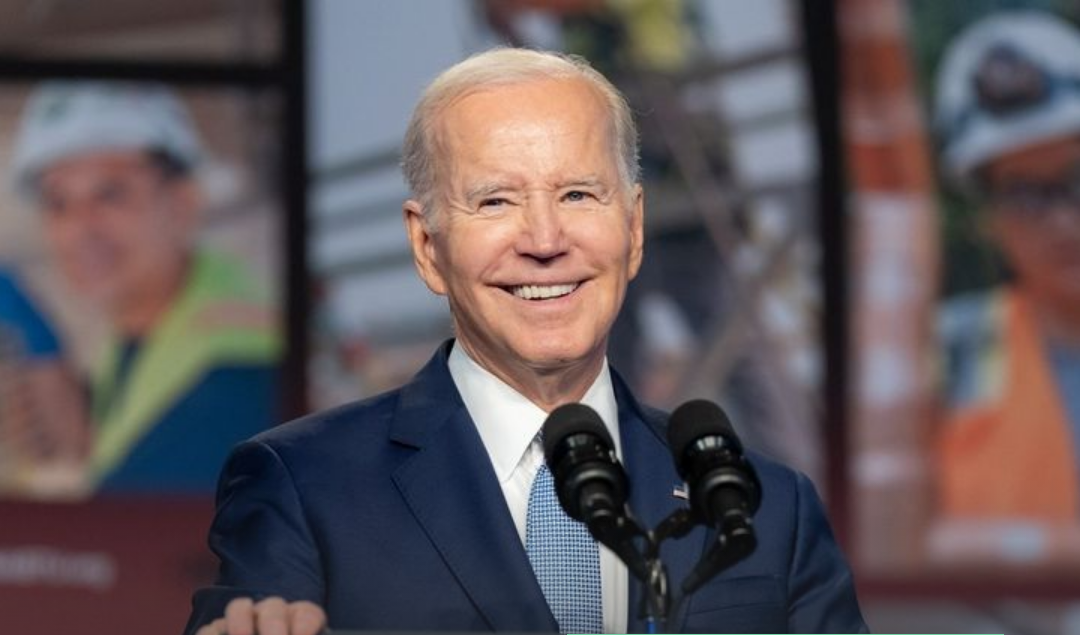
By Stephen Post
•
27 Apr, 2024
President Joe Biden made a statement Wednesday announcing a decision to pardon 11 people convicted of non-violent drug charges and commuted the sentences of five others. "America is a nation founded on the promise of second chances," he said . "We also recommit to building a criminal justice system that lives up to those ideals and ensures that everyone receives equal justice under law." Despite this positive use of his clemency powers, President Biden again failed to include any people still in prison at the federal level for cannabis offenses which is estimated to be at least 3,000 individuals. Even though he has provided record relief to almost 13,000 people with his expanded cannabis possession pardons, the President has failed to release a single person in prison for cannabis. Last Prisoner Project Executive Director, Sarah Gersten said, "While we are encouraged to see the President use his clemency power to commute the sentences of those incarcerated for drug offenses, we are hopeful that the administration will fulfill their promises both to use the clemency power more robustly as well as to commute the sentences of those still incarcerated for cannabis." "The Administration has made it clear that cannabis reform is a priority and one that will energize their electorate. To truly make an impact that will sway voters come November the president needs to take action to release the estimated 3,000 individuals still incarcerated for cannabis federally." We hope that President Biden recognizes that releasing people with cannabis offenses doesn't require legalization. They demand executive action. If he is looking for the next batch of candidates for clemency, we have already sent him a list of deserving individuals whose petitions are sitting with the Office of the Pardon Attorney. He simply needs to act on them. We recently rallied advocates at the White House on our 420 Unity Day of Action to demand their freedom and encourage the public to help tell Congress and the President to take further action.
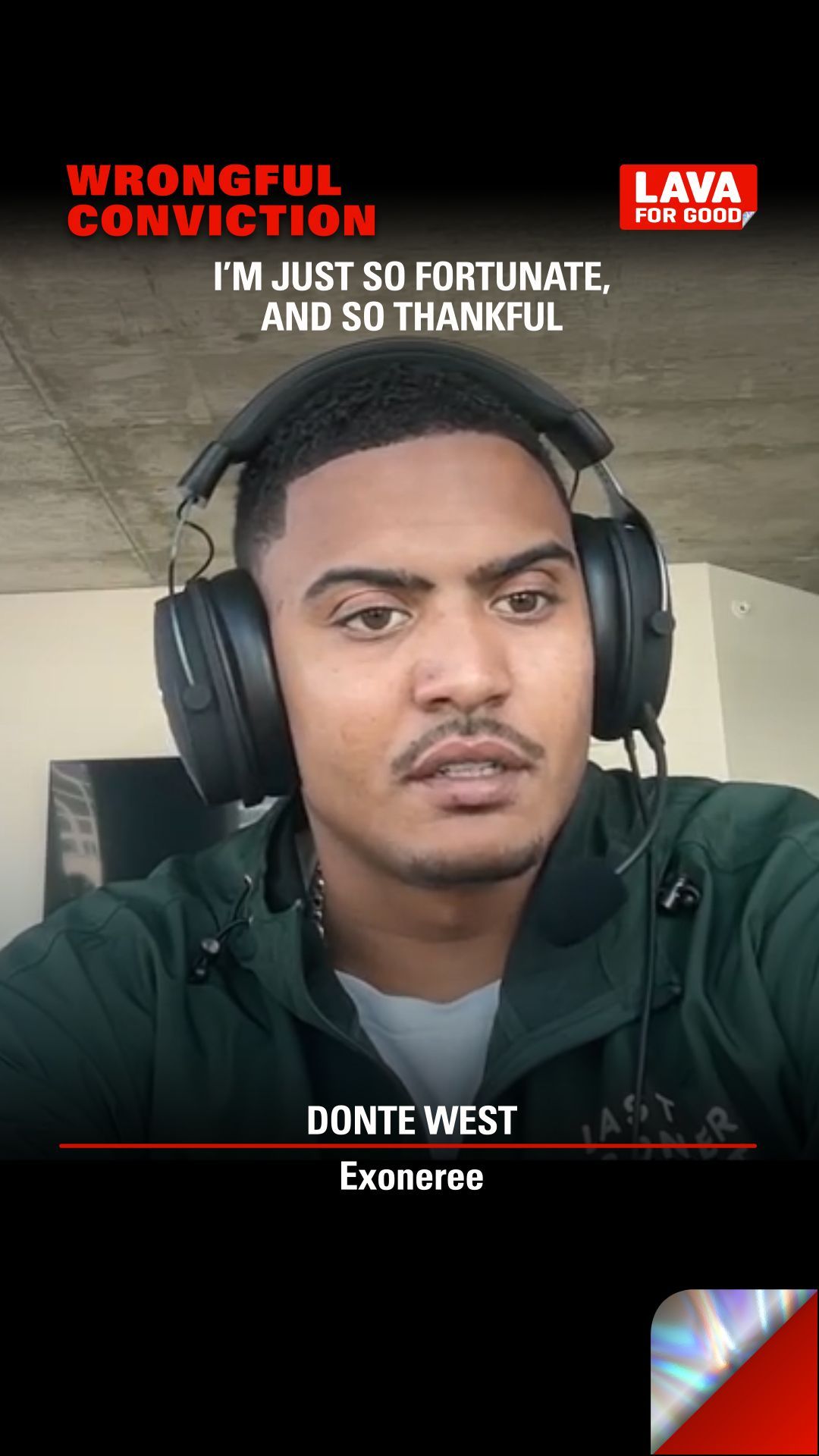
By Stephen Post
•
26 Apr, 2024
Listen on: iHeartRadio | Pandora | Spotify | RSS On March 8, 2016, Officer Nicholas Blake became suspicious of two vehicles traveling together on Interstate 70 toward Manhattan, KS due to their appearance and registration inconsistencies. He suspected they were involved in drug trafficking, with one acting as a decoy. Following a series of stops and surveillances by multiple law enforcement officers, a considerable amount of marijuana and methamphetamine was found in one of the vehicles leading to the arrest of Donte Westmoreland and others. Westmoreland was convicted based largely on the testimony of an informant, Jacob Gadwood, who claimed to have bought marijuana from Donte, but the informant's credibility was later questioned, and a prosecutorial deal ensuring Gadwood would not be charged with a crime was never disclosed. Donte Westmoreland is a decriminalization and anti-incarceration advocate whose experience with the criminal justice system changed his life forever. With a no criminal record score, and nothing illegal in his possession, Donte was arrested and convicted on charges that were later overturned. He spent three years imprisoned, where with the support of the facility's Warden and staff, he worked to fight his charges and also spoke to area teens about his experience with law enforcement and the courts. He was released on October 15, 2020 and is re-establishing his life in northern California where he works with the Last Prisoner Project to help free anyone incarcerated on cannabis related charges. Learn more about Donte in recent stories by Cannabis & Tech , Missouri Independent , and ABC . To learn more and get involved, visit: https://www.lastprisonerproject.org/ https://fromtheearth.com/missouri/independence-menu/?dtche%5Bpath%5D=brands%2Fwest-by-illicit We started the Wrongful Conviction podcast to provide a voice to innocent people in prison. We want to hear your voices, too. So call us at 833-207-4666 and leave us a message. Tell us how these powerful, often tragic and sometimes triumphant, stories make you feel. Shocked? Inspired? Motivated? We want to know! We may even include your story in a future episode. And hey, the more of you that join in, the more power our collective voices will have. So tell a friend to listen and to call us too at 833-207-4666. Wrongful Conviction is a production of Lava for Good™ Podcasts in association with Signal Co. No1. See omnystudio.com/listener for privacy information.
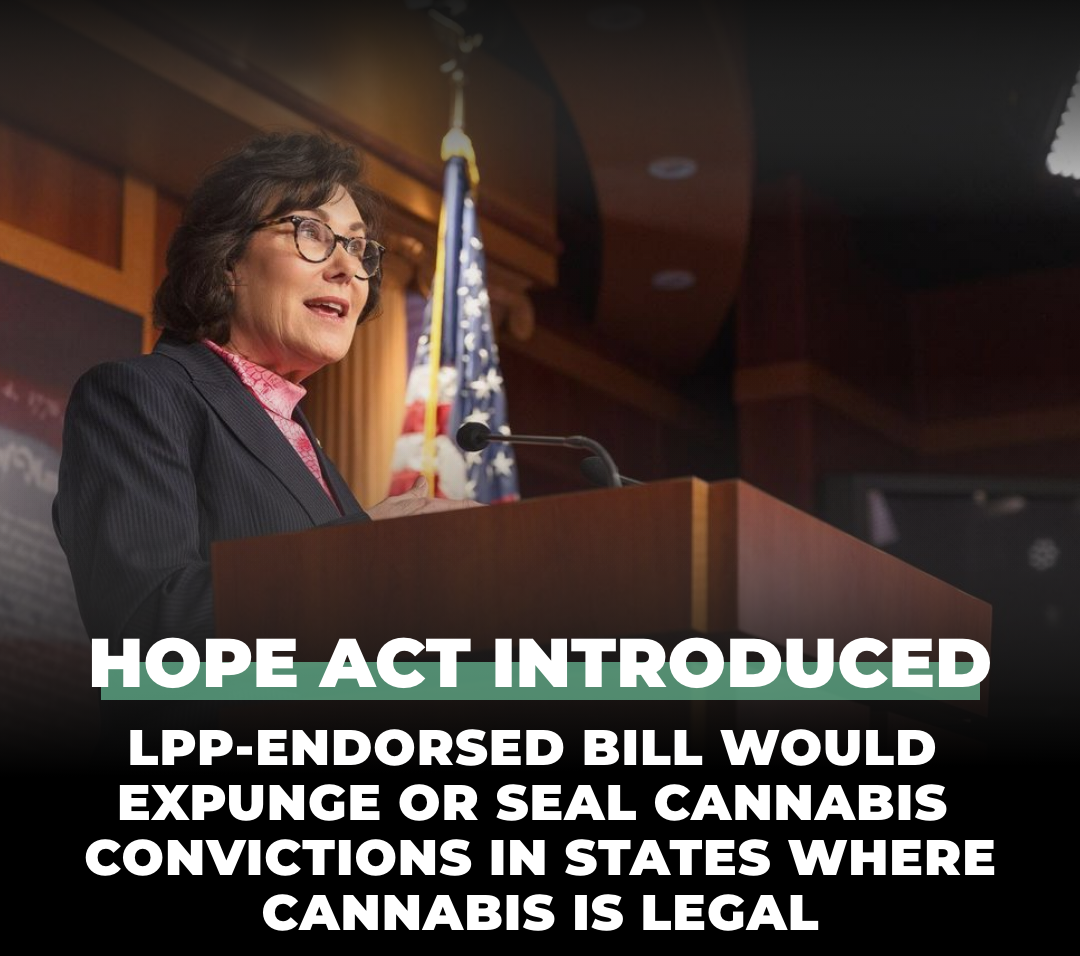
By Stephen Post
•
25 Apr, 2024
In a significant development in the realm of cannabis legislation, the Last Prisoner Project has thrown its support behind the bipartisan Harnessing Opportunity by Pursuing Expungement (HOPE) Act. This crucial legislation aims to rectify the injustices caused by cannabis convictions, particularly in states where cannabis has been legalized or decriminalized. Introduced initially in the House by Congressman Dave Joyce (R-Ohio) and Congresswoman Alexandria Ocasio-Cortez (D-New York) in 2023, the HOPE Act sought to address the pervasive barriers faced by individuals burdened with cannabis-related convictions. Recognizing the urgent need for reform, the Last Prisoner Project endorsed the House version, emphasizing its commitment to advocating for criminal justice reform and equitable opportunities for those impacted by past cannabis convictions. Fast forward to April 2024, and the HOPE Act takes a new form as Senator Jacky Rosen (D-Nevada) introduces the Senate version. With a focus on expunging cannabis convictions in legalized or decriminalized states, the Senate version of the HOPE Act aims to establish a federal grant program to cover the costs of expungements or sealing records. Senator Rosen's initiative aligns with the goals of the Last Prisoner Project, which seeks to alleviate the burdens faced by individuals with cannabis-related convictions, particularly in states like Nevada. Stephen Post, Communicatoins Manager at Last Prisoner Project, emphasized the importance of the HOPE Act in providing a second chance to those affected by state-level marijuana possession arrests. "Countless Americans shoulder the enduring weight of a criminal record – often stemming from minor infractions like a marijuana possession or conspiracy charge. This label becomes a barrier to housing, employment, public benefits, and educational opportunities, consigning many to a cycle of poverty," said Post. "These outdated policies impede progress in our communities, affecting us all. The HOPE Act offers a beacon of relief by aiding states in clearing these unjust hurdles, particularly by streamlining the process through automation. We commend Representatives Joyce and Ocasio-Cortez for prioritizing pragmatism over partisanship, and we eagerly anticipate further collaboration to advance this vital reform." The Last Prisoner Project's endorsement of both the House and Senate versions underscores the organization's unwavering commitment to addressing the injustices perpetuated by cannabis criminalization. We are optimistic that as more states have passed legalization, record expungement will continue to become more commonplace. Our 2023 State of Cannabis Justice Report showed, 24 states have enacted cannabis-specific record clearance laws, and 10 have enacted cannabis-specific resentencing laws. Our work in states throughout the country has shown us the jurisdictions need additional resources to implement these policies even after passing legislation As the HOPE Act gains momentum in Congress, propelled by bipartisan support and advocacy from organizations like the LPP and efforts like our recent 420 Unity Day of Action , there is renewed support for individuals burdened by past cannabis convictions. With each endorsement, the call for comprehensive cannabis reform grows louder, signaling a step closer towards justice, equity, and redemption for all.
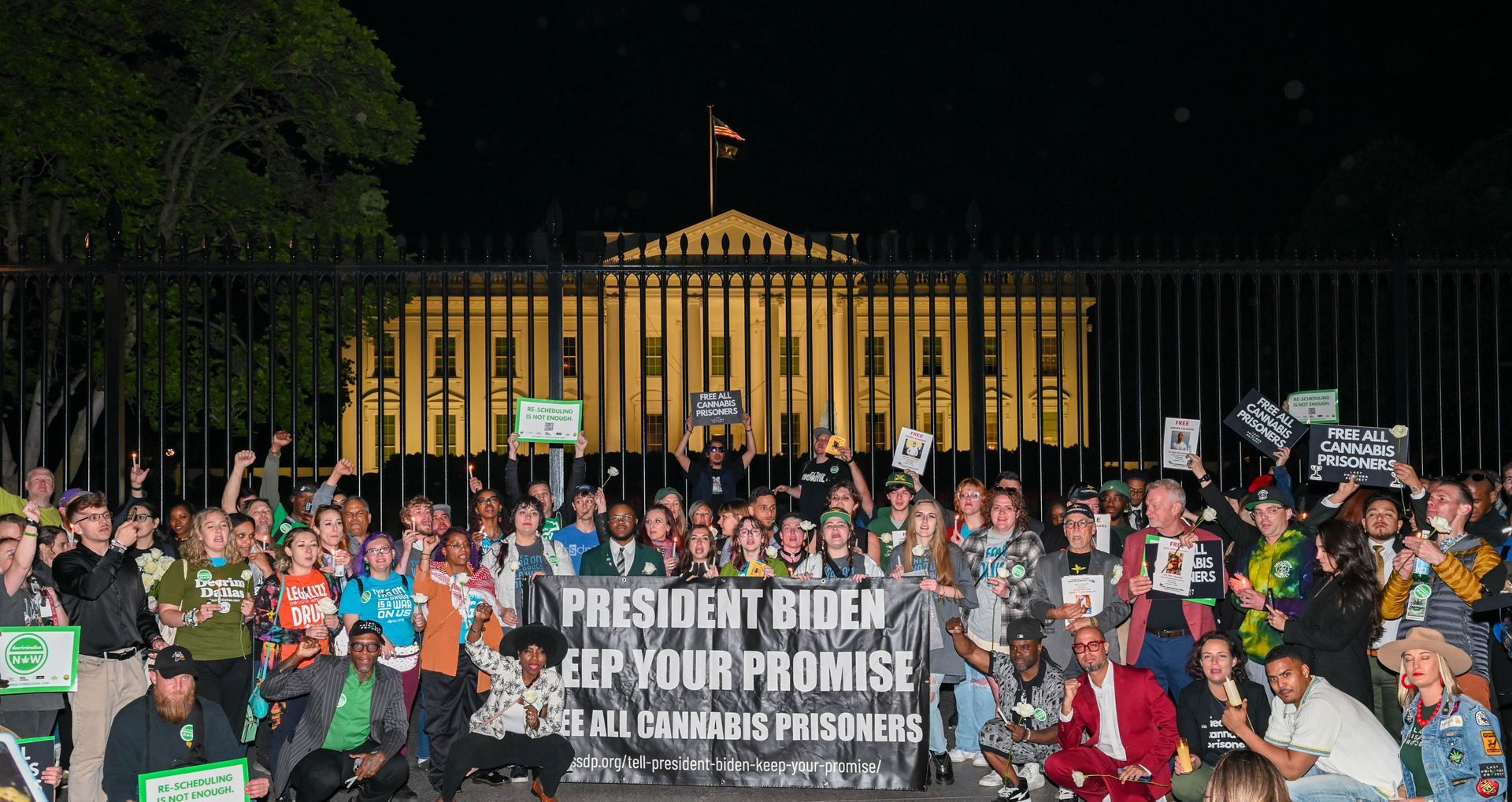
By Stephen Post
•
19 Apr, 2024
Congressional Leaders, Grassroots Organizations & Cannabis Industry Activists Call for Decriminalization during 420 Unity Day of Action Multi-Day Activism Concludes with Moving White House Candlelight Vigil Honoring those Still Incarcerated and their Families PRESS HERE to Download Photos + Videos from the Week’s Events Washington D.C., April 19 – Over the past several days, Last Prisoner Project (LPP) has been mobilizing the largest coalition of bipartisan cannabis advocacy, industry, and grassroots organizations, as well as individual activists to convene in Washington D.C. for a 420 Unity Day of Action . A number of lobbying events applied public pressure on Congress and President Biden, encouraging them to take action to fully legalize cannabis, free those still in prison and clear cannabis-related convictions. Although 24 states and D.C. have legalized adult-use cannabis sales and the vast majority of the U.S. population now lives in states with some form of legal cannabis, tens of thousands of people remain in state and federal prison and millions still suffer the collateral consequences of a criminal record for the same activity others now profit from. Advocates were joined by several elected officials who have been leading the fight for cannabis reform including Sen. Ron Wyden (D-Oregon), Rep. Earl Blumenauer (D-Oregon), Rep. Ayanna Pressley (D-Massachusetts) who spoke during Wednesday’s press conference in front of the U.S. Capitol, and the next day Rep. Ilhan Omar (D-Minnesota) spoke to advocates at the Capitol Visitor Center before Lobby Day meetings with elected officials from both parties including Sen. Cory Booker (D-New Jersey), Sen. Chuck Schumer (D-New York), Sen. Kirsten Sinema (D-Arizona), Sen. John Fetterman (D-Pennsylvania), Sen. Bill Cassiday (R-Louisiana), Sen. Mark Warner (D-Virginia), and others to call for the full legalization of cannabis, the removal of criminal penalties and retroactive relief. Specifically, advocates called on lawmakers to co-sponsor one of the three pieces of legislation which would federally legalize cannabis, the MORE Act , States Rights Act , and the soon to be re-introduced CAOA , as well as the HOPE Act , which was introduced in the Senate on Thursday and would provide funding for state-level expungement programs. Capping off 48 hours of lobbying and activism, formerly incarcerated LPP constituents Bryan Reid , Kyle Page , Donte West and Andy Cox , and families of those still incarcerated including Mitzi Wall and Alicia Deals , were joined by hundreds of advocates for a candlelight vigil in front of the White House to honor all those harmed by cannabis criminalization. Throughout the week, directly-impacted advocates were joined by celebrity voices including Rosario Dawson, M-1 of Dead Prez, and JoJo Simmons who used their platforms to spread the calls to decriminalize far beyond the capital. This advocacy work to broaden the movement and get people engaged on these issues will continue throughout the weekend as the 4/20 Unity events culminate with the National Cannabis Festival taking place today and tomorrow (April 19-20) at RFK Campus Festival Grounds which includes educational panels and a fireside chat with Last Prisoner Project Board Member M-1 . The weekend will conclude with a concert headlined by Thundercat and Wu-Tang Clan with Last Prisoner Project Ambassador Redman . To join the fight for cannabis justice, contact your elected officials by sending them a letter and calling their offices urging them to decriminalize cannabis now. Photo Credit: Ben Droz The bipartisan advocacy groups that joined LPP this week included: Drug Policy Alliance (DPA) ( @drugpolicyalliance ) Students for Sensible Drug Policy (SSDP) ( @ssdpofficial ) NORML ( @natlnorml ) Veterans Cannabis Coalition ( @veteranscannacoalition ) Parabola Center ( @parabolacenter ) Reason Foundation Law Enforcement Action Partnership (LEAP) ( @leactionpartnership ) National Cannabis Festival ( @natlcannabisfest ) National Craft Cannabis Coalition ( @nationalcraftcannabiscoalition ) National Cannabis Industry Association (NCIA) ( @nationalcannabisindustry ) Minority Cannabis Business Association (MCBA) ( @mincannbusassoc ) Indigenous Cannabis Industry Association (ICIA) ( @indigenouscannabisindustry ) Asian Cannabis Roundtable ( @asiancannabisroundtable ) National Association of Black Cannabis Lawyers (NABCL) ( @nabcl_llc ) FreedomGrow ( @FreedomGrowForever ) Marijuana Justice ( @thcjusticenow ) Doctors for Drug Policy Reform ( @d4dprorg ) United Food and Commercial Workers (UFCW) ( @ufcwunion ) Bay Area Latino Cannabis Alliance (BALCA) ( @balca_bayarea ) Supernova Women ( @supernovawomen ) Minorities for Medical Marijuana ( @m4mmunited ) Better Organizing for Winning Legalization ( @thebowlpac ) Midwest Cannawomen ( @midwestcannawomen ) DCMJ ( @DCMJ2014 ) Just Leadership USA (JLUSA) ( @justleadershipusa ) National Association of Criminal Defense Lawyers ( @nacdl ) United For Decrim Marijuana Policy Project (MPP) ( @marijuanapolicyproject ) ABOUT LAST PRISONER PROJECT Last Prisoner Project is dedicated to freeing those incarcerated due to the War on Drugs, reuniting their families, and helping them rebuild their lives. As laws change, there remains a fundamental injustice for individuals whose conviction is no longer a crime. We work to repair these harms through legal intervention, constituent support, direct advocacy, and policy change. Visit www.lastprisonerproject.org or text FREEDOM to 24365 to learn more. Follow Last Prisoner Project: Instagram | LinkedIn | X/Twitter | Facebook For Media Inquiries: Linda Carbone & Katie Leggett PRESS HERE linda@presshereproductions.com | katie@pressherepublicity.com Stephen Post Last Prisoner Project’s Strategic Communications Manager stephen@lastprsionerproject.org | press@lastprisonerproject.org
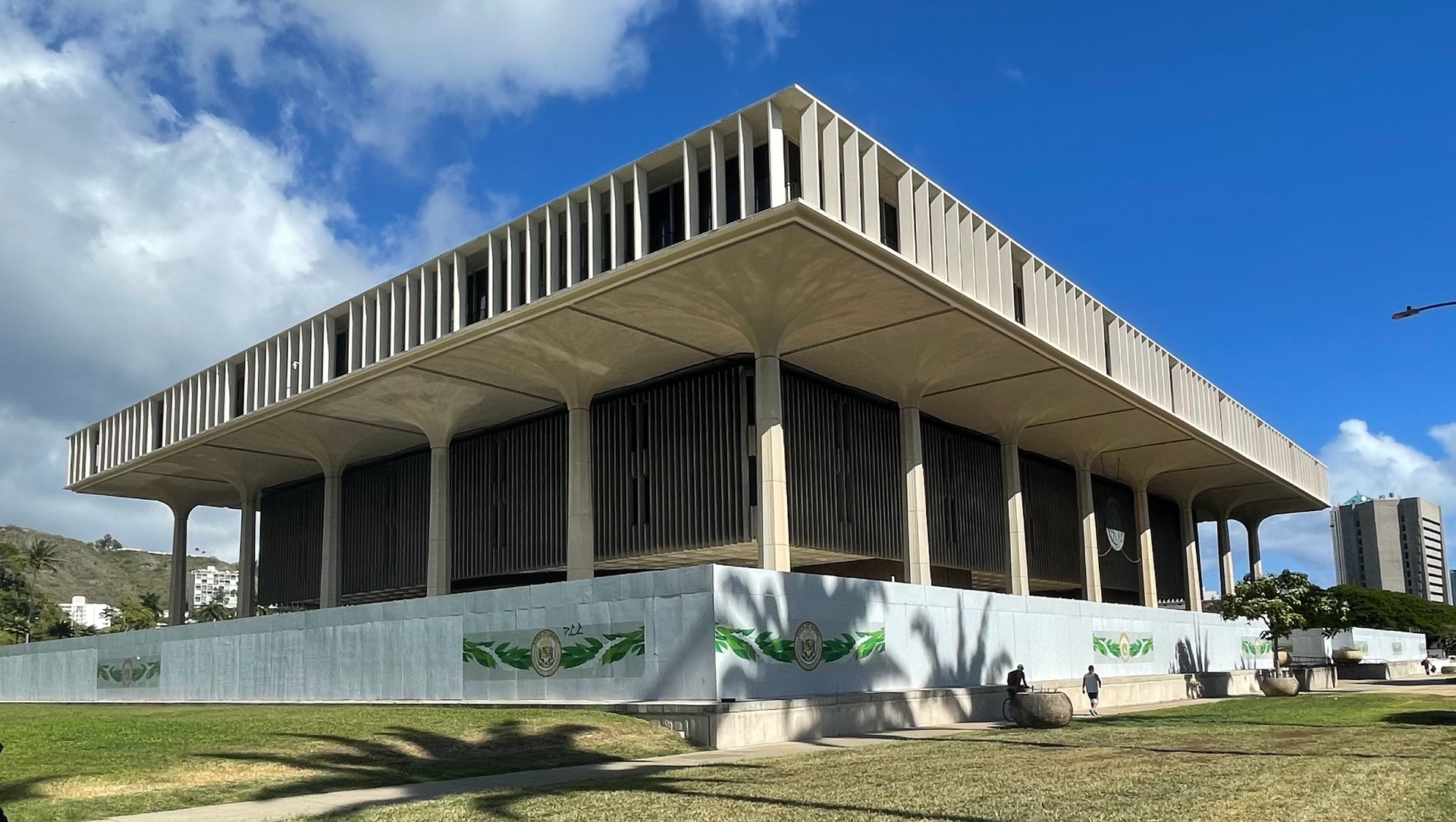
By Frank Stiefel
•
18 Apr, 2024
Statement from Frank Stiefel Senior Policy Associate Last Prisoner Project Hawai’i Legislature Sends Bill to Governor Green that will Provide Retroactive Relief for Those Criminalized for Cannabis Possession April 18, 2024 House Bill 1595 (HB 1595), which would create a pilot for the creation of a state-initiated expungement process for individuals with non-conviction records for cannabis possession, has been passed by the Hawai’i Legislature and now awaits Governor Green’s signature. Over the past year, Last Prisoner Project (LPP) has been working with Representative David Tarnas, Chair of the Hawai'i State House Committee on Judiciary and Hawaiian Affairs, to figure out relief pathways for those criminalized during cannabis prohibition. Our work with Representative Tarnas led to him introducing HB 1595 at the start of this year, which would begin to address the injustices perpetrated during the War on Drugs through the creation of a state-initiated expungement process for individuals with a criminal record for cannabis possession. On March 1st, Representative Tarnas invited LPP to participate in an informational briefing on the importance of cannabis record clearance . During the briefing, we gave a presentation on the landscape of cannabis record clearance and how HB 1595 could begin to dismantle the racial injustices that the criminal legal system has perpetuated during prohibition in Hawai’i. The Hawai'i Criminal Justice Data Center (HCJDC) also participated in the briefing and presented data showing that approximately 40,000 of the 50,000 criminal records that are eligible under HB 1595 are for non-convictions. This means that 40,000 individuals have been found not guilty of any criminal wrongdoing, yet they still carry a criminal record for cannabis possession. Since the briefing on March 1st, HB 1595 has been amended to reflect the preferred approach of the Department of the Attorney General. The bill now outlines the creation of a pilot for the implementation of a state-initiated expungement process for non-conviction records of cannabis possession. Our hope is that HB 1595 will be a blueprint for how Hawai’i can begin to provide retroactive relief to the thousands of individuals who continue to suffer the consequences of having a criminal record for cannabis possession, an offense that has been decriminalized since 2019. “I believe our state has an obligation to ensure that individuals who continue to suffer the consequences of an outdated law have an opportunity to finally move on with their lives. HB 1595 represents the first step for Hawai'i to expand the relief offered by record clearance to a greater number of individuals who have a criminal record for cannabis possession. My hope is that this pilot project will demonstrate that Hawai'i can grow this state-initiated expungement process to ensure that every individual that has been affected by a criminal record for cannabis possession is provided retroactive relief,” said Representative David Tarnas. There are now 24 states that have passed laws to create cannabis-specific expungement processes. Similarly, the inclusion of criminal justice policies has become commonplace for states that have sought to legalize adult-use cannabis. Since 2018, 13 of the 14 states that have legalized cannabis have included record clearance policies, and since 2021, they have all been state-initiated. We look forward to continuing to work with legislators in Hawai’i to create systems that can provide retroactive relief for the thousands of individuals who have been criminalized during prohibition. About Last Prisoner Project The Last Prisoner Project, 501(c)(3), is a national nonpartisan, nonprofit organization focused on the intersection of cannabis and criminal justice reform. Through policy campaigns, direct intervention, and advocacy, LPP’s team of policy experts works to redress the past and continuing harms of unjust cannabis laws. We are committed to offering our technical expertise to ensure a successful and justice-informed pathway to cannabis legalization in Hawai'i.
New paragraph
© 2024
The Last Prisoner Project. All rights reserved.
Last Prisoner Project is a 501(c)(3) tax-exempt organization with EIN 83-4502829. Mailing address: 1312 17th St #640 Denver, CO 80202. Our governing documents and conflicts of interest policy can be found here. Our Privacy Policy can be found here.
Website built on KUSHY



